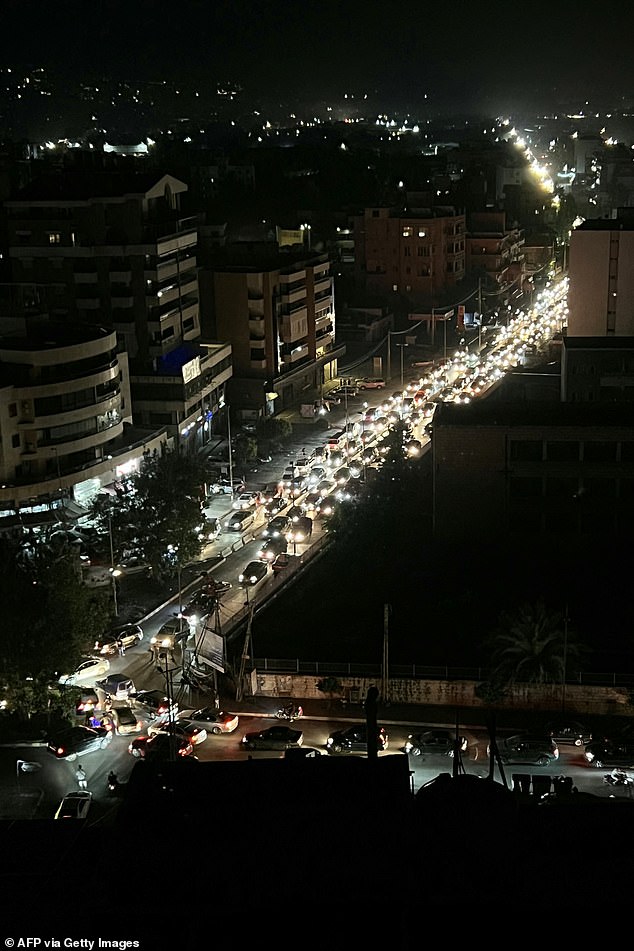Thousands of people fled southern Lebanon seeking refuge yesterday as Israel bombed hundreds of terror sites, killing at least 492 people.
Lebanese officials said the attacks from south of the border marked the country’s deadliest day since the 2006 Israel-Hezbollah war.
Cars clogged roads trying to escape the bombings while fighter jets attacked hiding places for rockets, missiles and unmanned aerial vehicles.
The Lebanese government said more than 1,600 people were injured in Monday’s bombing alone, with “thousands” displaced from their homes and forced to seek refuge in makeshift shelters in Beirut, also under fire.
Lebanon’s neighbours called for restraint as Egypt cancelled flights to and from Beirut from Tuesday. The FCDO continues to advise Britons in Lebanon to leave the country while flights are available, but has stopped short of ordering an evacuation.
Traffic jams form in the Lebanese city of Sidon on September 23 as people flee their homes.
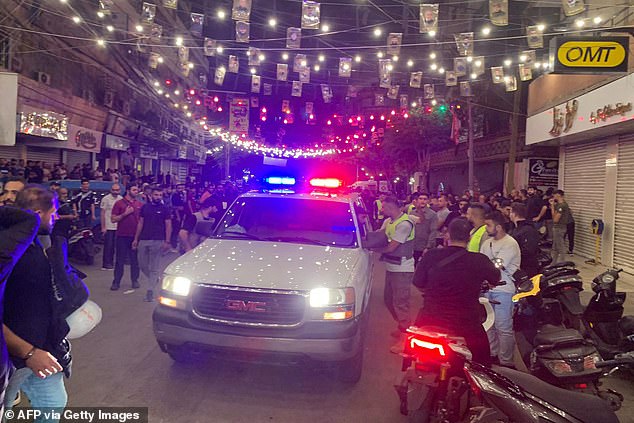
Emergency crews gather at the site of an Israeli attack in Beirut’s southern suburbs
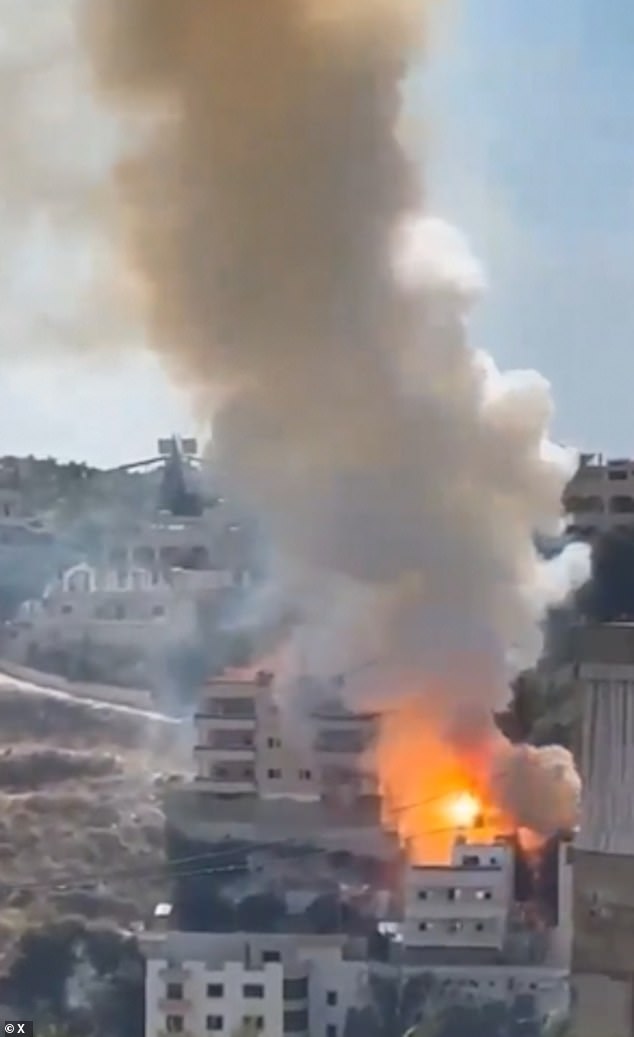
A video shows the aftermath of an Israeli attack in Lebanon on Monday
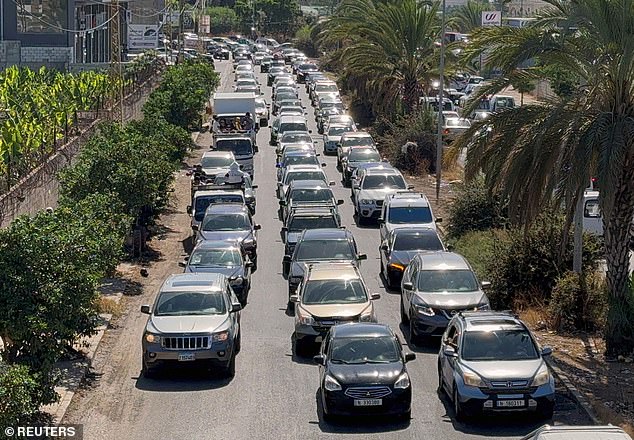
Vehicles flee north from the southern Lebanese coastal city of Sidon following Israeli shelling
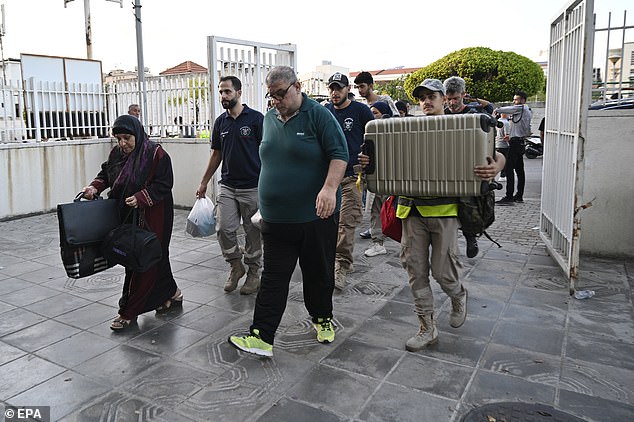
People who fled villages in southern Lebanon arrive at a makeshift shelter at an educational institution in Beirut
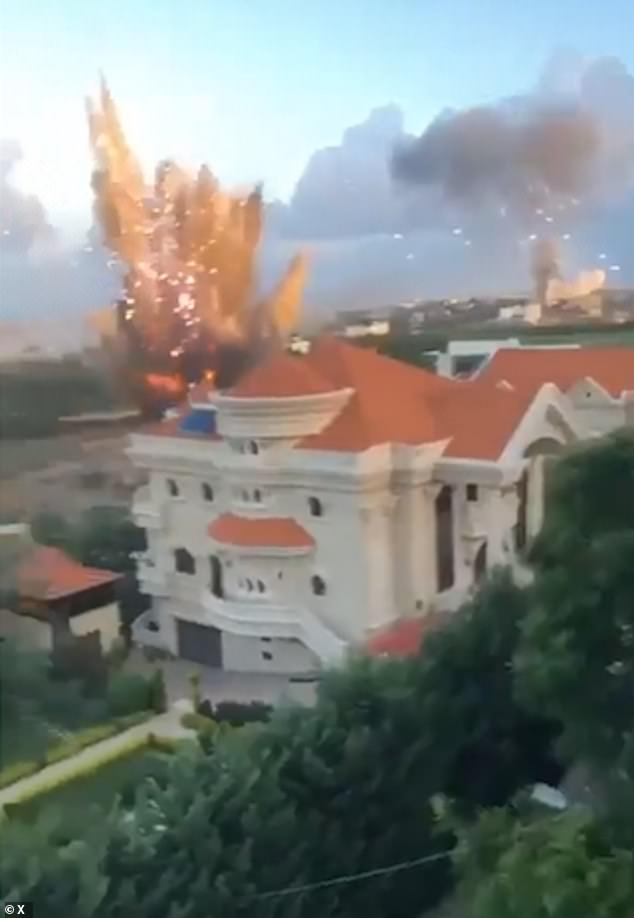
A large explosion is seen near a residential building in southern Lebanon
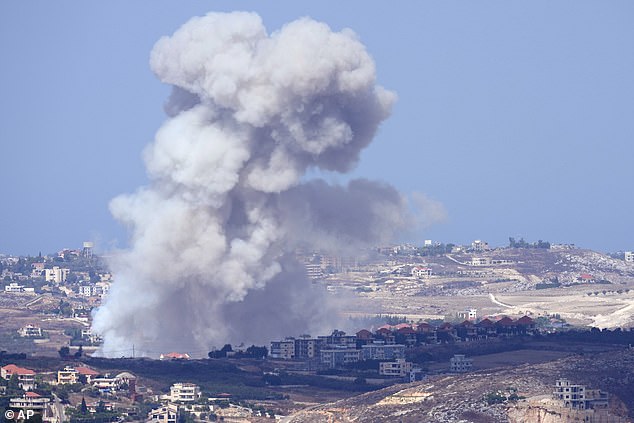
Smoke rises following Israeli airstrikes on villages in the Nabatiyeh district on Monday, September 23.
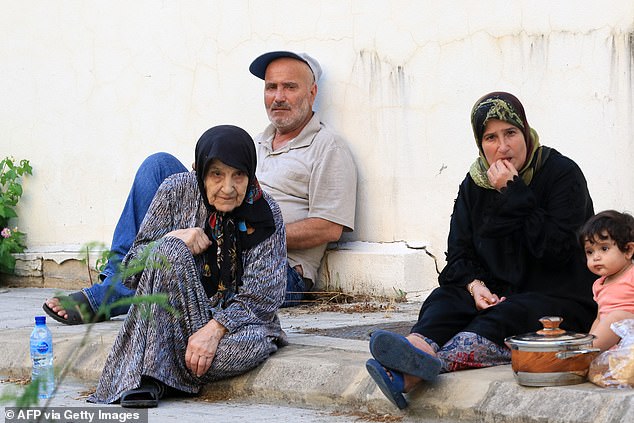
A Lebanese family, who fled their village in southern Lebanon, takes refuge in a public school in Sidon on September 23.
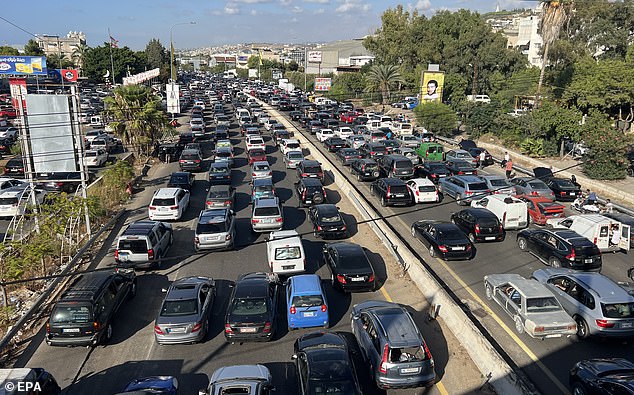
Lebanese flee in their cars from southern Lebanon towards Sidon and Beirut, on the Zahrani-Nabatieh highway, in Ghazieh, southern Lebanon, on September 23.
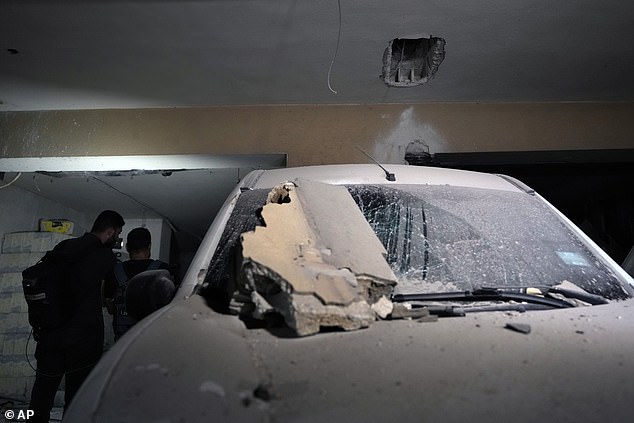
Damage to a house and a car after an Israeli airstrike near Beirut on Monday
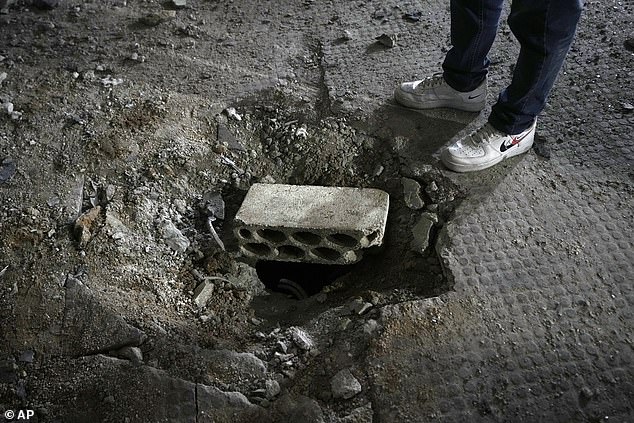
Some 1,600 people were injured in Monday’s attacks in Lebanon.
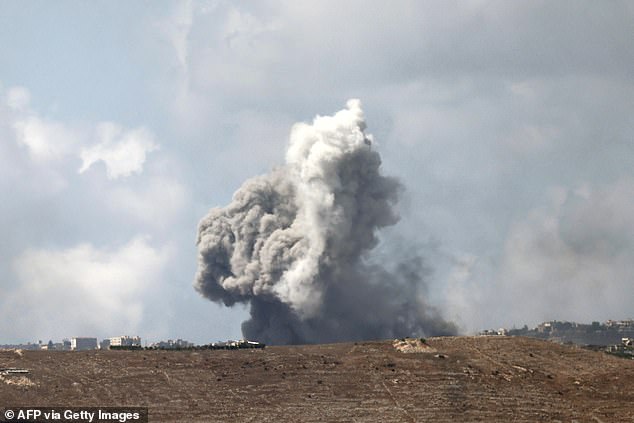
Columns of smoke rise after an Israeli attack near the border on Monday
As attacks raged across Beirut and its southern suburbs on Monday, Israeli Prime Minister Benjamin Netanyahu told the people of Lebanon: “The Israel Defense Forces have warned you to move away from danger. I urge you to take this warning seriously.”
The attack came after Israel launched another strike on Beirut targeting Hezbollah’s third-in-command, Ali Karaki, who heads the Southern Front. However, Hezbollah said last night that Ali Karaki was “safe” and had been transferred.
Hamas reported shortly after 22:00 GMT that the field commander of its military branch in southern Lebanon, Mahmoud al Nader, had been killed in an attack in Lebanon.
The Israel Defense Forces said Monday it had eliminated tens of thousands of rockets, including a Russian-made DR-3 cruise missile hidden inside a civilian home, as it launched a “proactive offensive operation.”
Their attacks follow a bold raid using their pagers and walkie-talkies, which exploded, injuring thousands of officers last week.
But Islamic extremists struck back yesterday, firing more than 200 rockets, including ten long-range missiles, which hit the West Bank, 60 miles from the border.
Some 500,000 Israeli children were ordered not to attend school in the north and ministers put the entire Jewish state on alert.
Images showed damage to residential homes in northern Israel where the Iron Dome missile had failed to stop rockets fired from Lebanon.
Hezbollah began shelling northern Israel in support of Hamas a day after the terror group massacred 1,200 Jews on October 7.
Hezbollah has said it would only stop its attacks if Netanyahu reaches a ceasefire agreement with Hamas. But negotiations have failed and the prime minister is exerting military pressure to force Hezbollah to withdraw.
As Israeli planes took off early in the morning, Netanyahu warned Hezbollah: “Whoever tries to harm us, we will harm him even more.”
Israel claimed its strikes destroyed 800 terror sites, but By afternoon, the Lebanese Health Ministry reported at least 492 deaths, including 35 children.
Prime Minister Najib Mikati said Israel’s actions amounted to “a war of extermination” and that the UN peacekeeping force was “very concerned about the safety of civilians.”
“The continued Israeli aggression against Lebanon is a war of extermination in every sense of the word and a destructive plan that aims to destroy Lebanese towns and cities,” he said.
He urged “the United Nations, the General Assembly and influential countries… to deter (Israeli) aggression.”
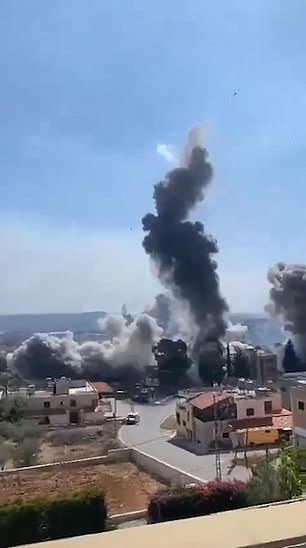
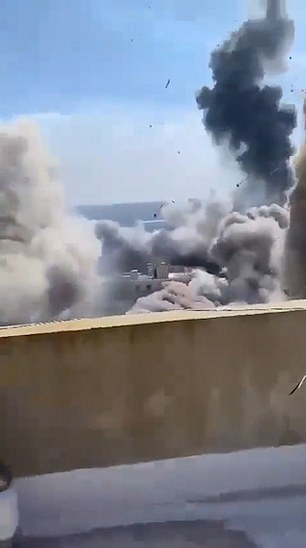
A person films from a rooftop in Lebanon as airstrikes approach their location
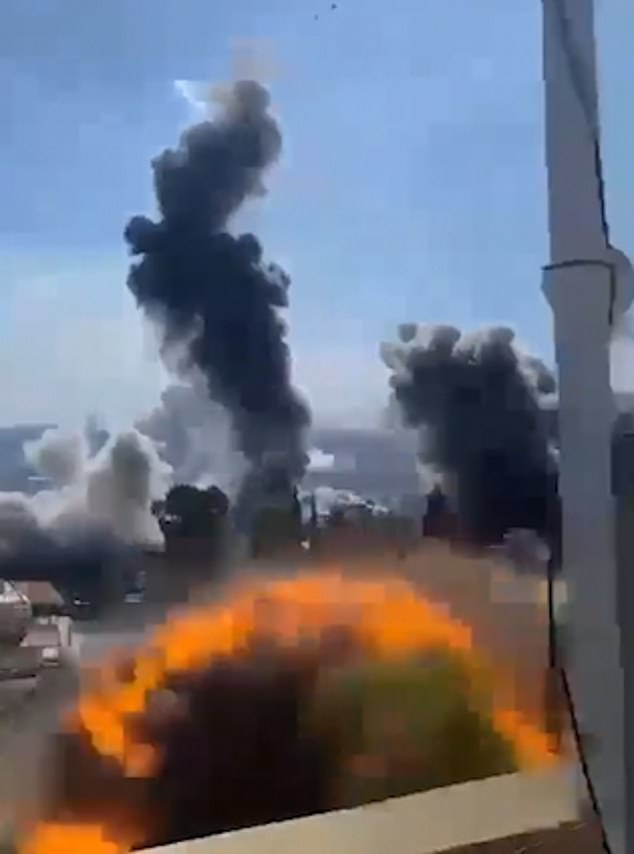
Terrifying images show a huge explosion as people scream in the background.
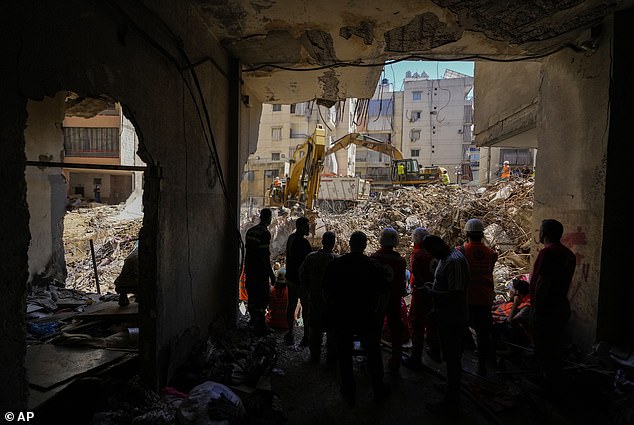
Emergency workers use bulldozers to clear debris at the site of Friday’s Israeli attack in Beirut’s southern suburbs.
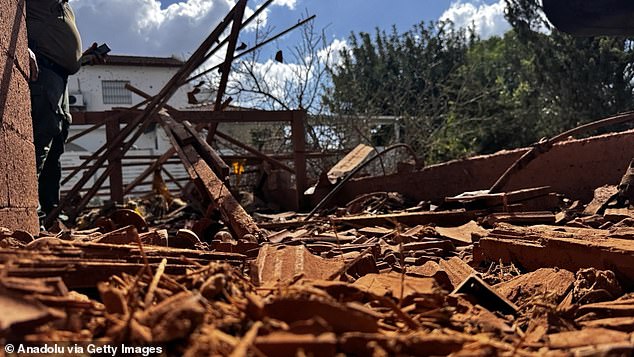
Homes in Israel damaged after rocket attacks from Lebanon on Monday
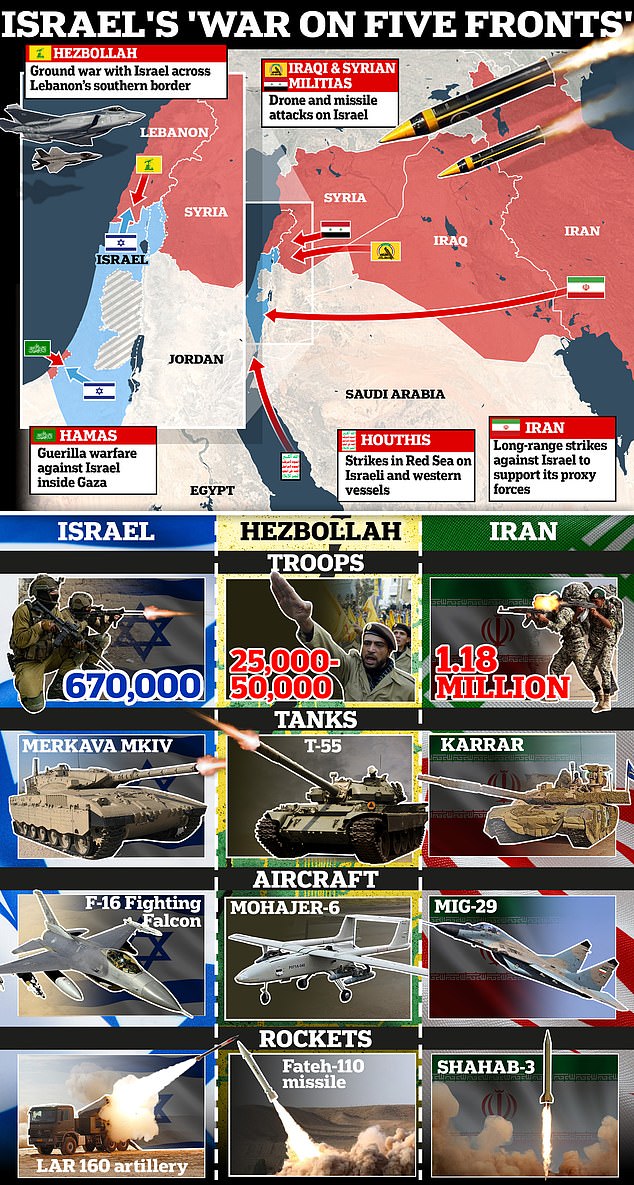
Israel’s Iron Dome was able to intercept some of the rockets fired towards Tiberias.

Heavy traffic was seen as Lebanese residents evacuated southern cities, including Sidon, towards Beirut.
While holding talks with UAE President Sheikh Mohamed bin Zayed Al Nahyan, US President Joe Biden said: “We will do everything possible to prevent a wider war from breaking out.”
But Iran’s new leader, Masoud Pezeshkian, warned that the consequences of a “full-scale conflict” would be “irreversible”.
“We know more than anyone that if a major war were to break out in the Middle East, it would not benefit anyone in the world,” he said.
“It is Israel that seeks to create this total conflict.”
IDF spokesman Rear Admiral Daniel Hagari said Israel was “not looking for war” but would do “whatever it takes” to ensure its security after months of back-and-forth with southern Lebanon-based Hezbollah.


